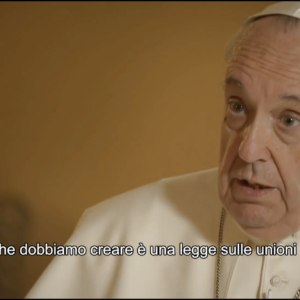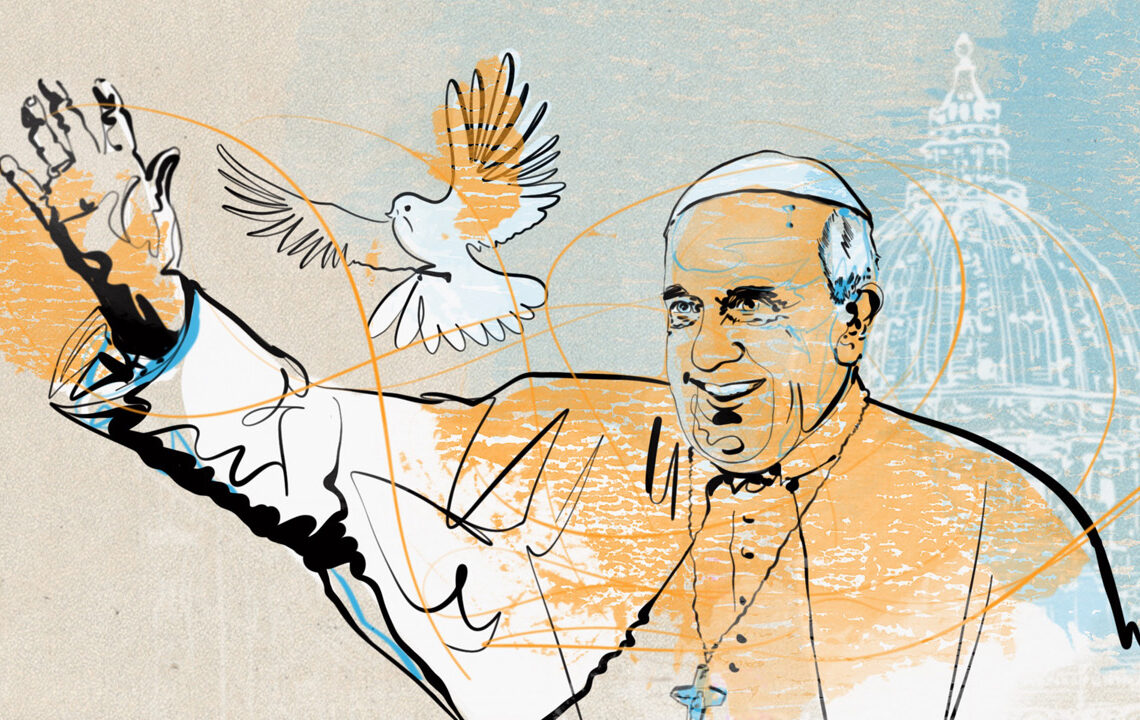“Homosexual people have the right to have, and to be, in a family. They are children of God and have a right to a family. Nobody should be excluded from this or be made unhappy because of it.”
Pope Francis’ words of respect and fraternal solidarity towards gay, lesbian, bisexual and transgender people have made their way around the world. Francis, in his wisdom (and his grasp of the power of the media), had spoken these words during a TV interview granted last year. Yet, they became known to the world only a few days ago at the Rome Film Festival, during the premiere of the documentary “Francesco” by Evgeny Afineevsky, Russian-born American director.
Film festivals rarely ‘make’ history, yet the Rome Film Fest succeeded in doing just that with this courageous edition that reflects the intellectual and spiritual leadership of its artistic director, Antonio Monda. “I wasn’t expecting this bomb either,” Monda confessed to me this morning as he browsed the press review of the festival, which was full of world media headlines underlining the historic nature of the papal pronouncement.
The entirety of Francis’ teachings go in the direction of inclusivity: from his notable “who am I to judge?” expressed on the papal plane at the beginning of his pontificate, and that appalled many conservatives and reactionaries; to his reinterpretation of the character of Judas, considered a brother and friend according to the lesson of Father Primo Mazzolari; to the latest encyclical ‘Fratelli Tutti’, where that ‘tutti’ (the “all”) does not permit exclusion, exception, or discrimination of any kind.

But even as all the popes starting at least from Pius XI have, in a more or less explicit and firm way, condemned racism and discrimination against ethnic, linguistic and religious minorities, those gestures never extended to the recognition of legal, social and political rights of gay people. Yet gays and lesbians over the centuries have been hapless victims of atrocious persecution: from the fires of the Inquisition and the Nazi extermination camps to the gallows of the Ayatollah regime. But only Francis had the courage to say those simple words to a gay man who was the victim of clergy abuse: “Juan, it is God who made you gay and, in any case, he loves you. God loves you and the Pope also loves you”. The Pope did not say, “He tolerates you,” “He will bear with you,” nor, “He accepts you”—he said, “He loves you.”
The documentary became a global sensation because of Pope Francis’s openness to civil unions for gay people, yet the documentary itself paints a larger picture of this pontificate. Afineevsky, an Oscar nominee for his documentaries on the wars in Ukraine and Syria, defines himself as a non-believer. Nevertheless, he was fascinated by the courage and freshness of Francis’ message. Without neglecting to mention critiques of Bergoglio’s record, from allegations of collusion with the Argentine military dictatorship to his mismanagement of the pedophilia scandal in the Church, the director still underscores the extraordinary coherence of the pontiff in recognizing a link between ecological destruction and forced displacement, and in propounding inclusivity and solidarity of the human family as the only solutions to the issues facing our planet.
The documentary, in addition to prompting a wave of positive and moving reactions from the LGBT community, their families and many Christian and non-Christian people – many of whom have joyfully welcomed this epochal, if not late, overture – has given rise to questions surrounding the origin of the interview—and its apparent cuts and edits. If you are interested in Vatican spy thrillers, check out the American Jesuit magazine, America magazine, which has the best reconstruction of this story. My conclusion after having read the article is that the substance of Francis’ message remains the same. The Pope reiterates, unequivocally, a position he had already expressed as archbishop of Buenos Aires, namely that he recognizes and supports civil unions between persons of the same sex without affecting the traditional doctrine on sacramental marriage between a man and a woman.

Unfortunately, several bishops and cardinals in recent days have rushed to the scene with a cascade of quibbles and quotations, offering different bombastic interpretations of the Pope’s simple and clear words in Afineevsky’s documentary. They range from the mirror-climbing champion, the bishop of Reggio Emilia, Camisasca (Communion and Liberation), to the American rebel cardinal Raymond Burke, former partner of Trump’s spin doctor, the fraudulent Steve Bannon.
Ignore them, and when you have a chance, please watch the movie. You will see that Francis’ message does not require parsing or explanation, for it contains the beauty and essence of the Gospel.
Translated by Eleonora Maccarone












